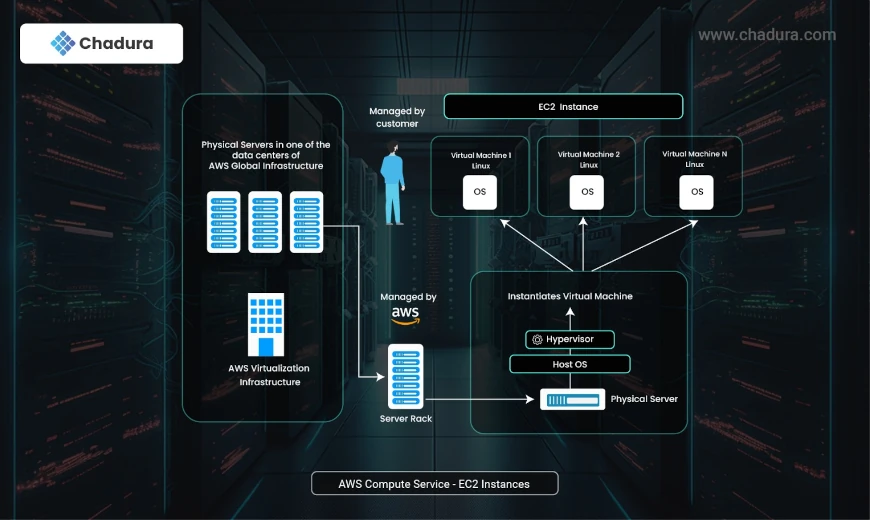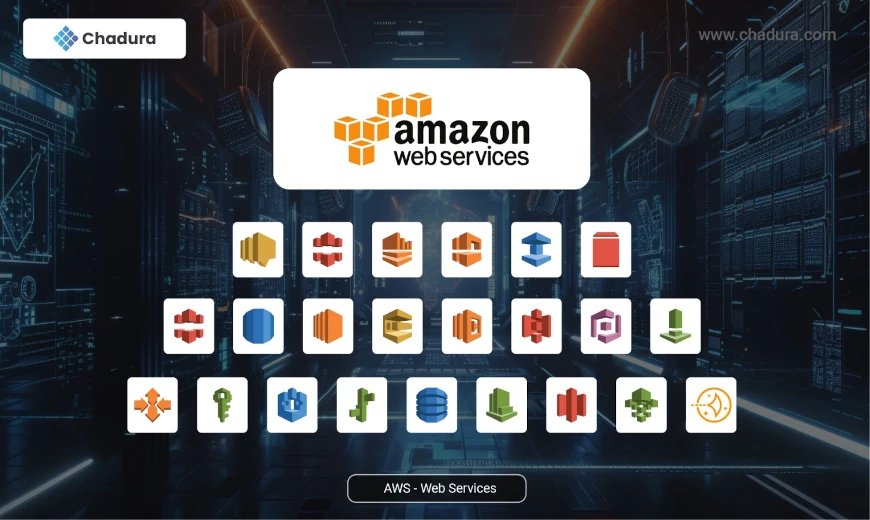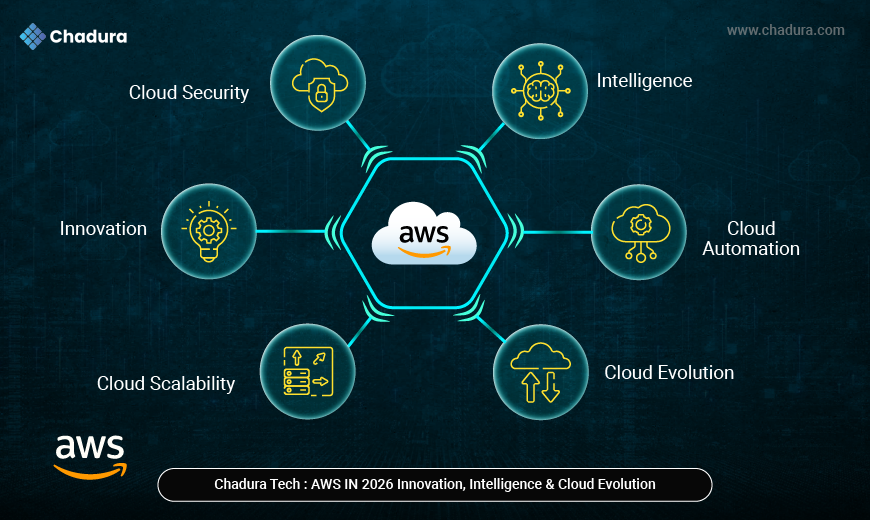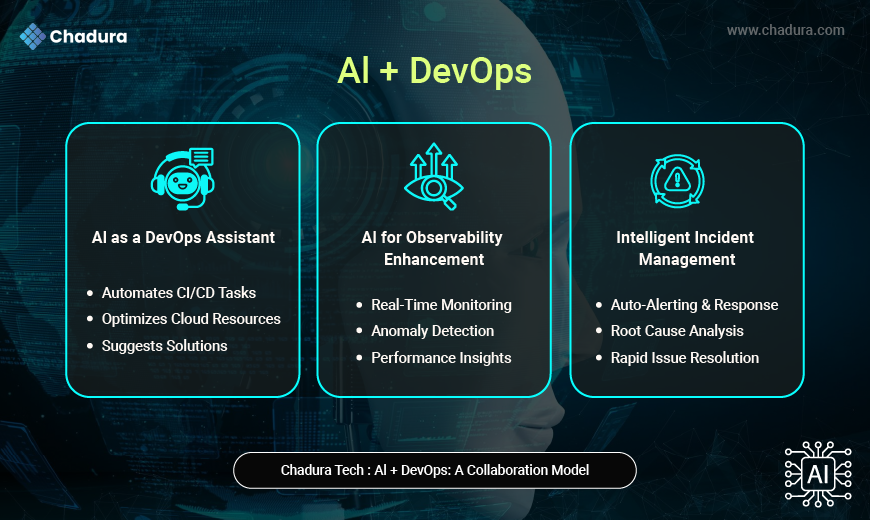Part - I of Part - I | Part - II | Part - III | Part - IV | Part - V
AWS Services
2. Storage
3. Database
4. Networking and delivery of content
1. AWS Compute Services
AWS provides a variety of cost-effective and flexible computing services to meet the needs of your organization, such as Amazon Elastic Compute Cloud (EC2), Amazon Elastic Container Service (ECS), Amazon Elastic Container Service for Kubernetes (EKS), Amazon Lightsail, AWS Batch, and AWS Lambda, to name a few. For some services, like Amazon EC2, you have extensive control of the underlying resources, while for others, AWS has full control.
With these computing services in AWS, you can dynamically provision a number of resources and pay only for the computing resources you actually consume. This significantly reduces the upfront capital investment required and replaces it with lower variable costs. Instead of the traditional long-term contracts or up-front commitments, you can opt to pay for your compute resources in AWS using an on-demand or spot pricing option to easily discontinue your cloud resources if you don’t need them, effectively reducing your operating expenses. Amazon EC2 is a commonly used AWS service that you can integrate with various features and services like Amazon Machine Image, Instance Store, Elastic Block Store, Elastic Network Interface, Elastic IP, Auto Scaling, Elastic Load Balancer, Placement Groups, Enhanced Networking, Security Groups, and so much more.
AWS has a powerful virtualization infrastructure that is composed of physical servers that they manage. Each physical server has a host operating system that runs a virtual machine monitor (VMM), also known as a hypervisor, which instantiates multiple VM “instances” that you can use. These instances use guest operating systems that you can manage.
AWS manages, operates, and controls the components from the host operating system and virtualization layer down to the physical security of the facilities in which the service operates. Conversely, the customer is responsible for the management of the guest operating system, such as installing patches and doing the necessary security configuration.

These services include:
- Amazon EC2
Amazon EC2 Auto Scaling
Amazon Elastic Container Registry
Amazon Elastic Container Service
Amazon Elastic Kubernetes Service
Amazon Lightsail
AWS Batch
AWS Elastic Beanstalk
AWS Fargate
AWS Lambda
AWS Serverless Application Repository
AWS Outposts
VMware Cloud on AWS
Amazon EC2
Amazon EC2 is a service that offers flexible cloud computing capacity geared toward web-scale computing and software development. There are several instance use options available for Amazon EC2, each identifying the amount of compute capacity an organization truly uses in a different way. These include on-demand instances with an hourly pay rate, reserved instances that come at an hourly-rate discount with additional reserved space available, and spot instances, which are highly discounted because they take advantage of unused cloud capacity.
Amazon EC2 Auto Scaling
Amazon EC2 Auto Scaling is a service that helps organizations maintain their EC2 applications, automatically adding or removing EC2 instances based upon their unique needs. Amazon EC2 Auto Scaling can also be used on a larger scale to manage fleet availability with dynamic and predictive scaling functionalities.
Amazon Elastic Container Registry
Amazon Elastic Container Registry is a registry for the storage, management, sharing, and deployment of Docker container images. The service hosts the images in order to simplify the development process and prevent organizations from having to worry about maintaining container repositories. Container images are registered within the AWS architecture, ready for reliable deployment.
Amazon Elastic Container Service
Amazon Elastic Container Service is a service that supports Docker containers and helps orchestrate scalable, containerized applications. With this, customers can access all the features of their applications via the cloud, including launching, stopping, and querying features via API calls.
Amazon Elastic Kubernetes Service
Amazon Elastic Kubernetes Service helps run the Kubernetes management infrastructure for a business spanning multiple Availability Zones. Any application running on the standard Kubernetes environment is available for smooth migration to this system and can run the plugins of Kubernetes partners.
Amazon Lightsail
Amazon Lightsail is a centralized, cost-effective solution for managing a virtual private server using AWS. This service includes access to virtual machines, DNS management, SSD storage models, and more for an affordable price. Lightsail is designed for high scalability as an organization grows.
AWS Batch
AWS Batch is a system for running batch computing jobs based upon specific computing volumes and requirements set by an organization’s developers and engineers. This keeps businesses from having to install and self-maintain bulky batch computing software just to run individual computing jobs, allowing them to focus on the data.
AWS Elastic Beanstalk
AWS Elastic Beanstalk allows organizations to develop and deploy scalable applications and AWS web services using a variety of programming languages, including Java, Ruby, Python, Go, PHP, .NET, Node.js, and Docker. Organizations must simply upload the code, while Elastic Beanstalk handles provisioning, scaling, and load balancing—yet, it is still possible to access any of these resources for full control at all times.
AWS Fargate
AWS Fargate is an engine for Amazon Compute that runs containers without the need for close server or cluster maintenance on the part of the customer. This means that organizations don’t need to spend precious time building and managing the infrastructure behind their applications.
AWS Lambda
AWS Lambda is a service that allows users to run code without the need for managing servers or provisions. Lambda allows serverless computing without administration or any charges outside of the price for the time spent computing. Instead, it applies the precise amount of computing power to a ZIP file or container image to run code for any request or event.
AWS Serverless Application Repository
AWS Serverless Application Repository services allow you to deploy applications, code, and components rapidly for both web and mobile use. Serverless applications speed up data processing, monitoring, and more.
AWS Outposts
AWS Outpost enables customers to tap into AWS infrastructure to make use of services and operating models from any data center—or even on-premises servers. These outposts can be used for teams supporting workloads that require on-site speeds and processing, all while supplying the hybrid functionality of AWS offerings.
VMware Cloud on AWS
VMware Cloud on AWS is a joint development between Amazon and tech services company VMware. It is designed to bring scalable solutions to businesses migrating or extending their on-premises environments over to the AWS cloud system.





